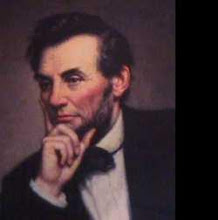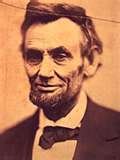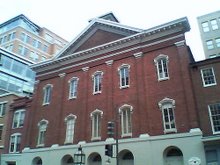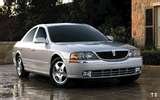
I’ve just finished reading a terrific book about the Battle of the Monocacy by Marc Leepson, called "Desperate Engagement." The battle, fought between Jubal Early and Lew Wallace of Ben Hur fame, took place four miles South of Frederick, Maryland. Early, who was on his way to threaten the Union capital in Washington, D.C., was ordered to engage Wallace at Frederick to divert Union troops from Lee’s advance. Early did not want to fight this battle, but he won it.
The controversy was that Jubal Early, after his victory over Wallace, should have advanced toward Washington without delay. According to Leepson, Washington was poorly defended at the time by "invalids and bank clerks." Instead, Early chose to rest his army which had been on the march since June 13th, allowing Grant to send thousands of reinforcements to the capital. When Early did attack, he was defeated.
Lincoln, who was visiting Fort Stevens in Washington at the time, became the first and only President to come under fire in active battle. Standing on the parapet of the fort, his tall frame an easy target, he was enjoying the spectacle of bullets whizzing past him until an officer in charge chewed him out and insisted he take cover. Check out the picture I found of the plaque dedicated to Lincoln for remaining at Fort Stevens under fire. I think it’s all pretty cool.
Leepson makes a convincing case for the early advance of Early. However, since being an armchair General is every history buff’s right, here’s LincolnFreak’s take on the subject: Early’s army had been thinned out by hundreds, and those remaining were wounded, exhausted and ill-fed. I think if he had attacked Washington without resting his men, he would have lost that battle anyway, bank clerks notwithstanding. Of course, there’s no way to know now.
Anyway, an interesting aside if you live in Baltimore – at one time Confederate troops were within 7 miles of Cockeysville. Today they’d be stuck in traffic on York Road. Also, if you visit the Monocacy battlefield in Frederick, you’ll see lots of impressive monuments, but the Lincoln plaque is at Fort Stevens












1 comment:
Many thanks for your review of Desperate Engagement.
It's always instructive to get the point of view of someone who has more knowledge about one part of the subject one is writing about.
I'm very pleased you found the book of value.
Marc Leepson
www.marcleepson.com
Post a Comment